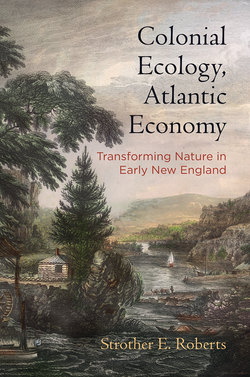Colonial Ecology, Atlantic Economy

Реклама. ООО «ЛитРес», ИНН: 7719571260.
Оглавление
Strother E. Roberts. Colonial Ecology, Atlantic Economy
Отрывок из книги
Colonial Ecology, Atlantic Economy
Series Editors
.....
These hostilities came at an especially disastrous time for the Pequot nation. Their villages had been particularly hard hit by the smallpox epidemic of 1633–1634, in which three out of every four Pequots died. Then, in the summer of 1635, a hurricane made ground in southern New England, destroying crops as they stood in the fields. Hunger stalked New England from 1635 to 1636, striking European and Indian communities alike. Shortages in maize harvests may have placed further strain on subordinate villages who owed tribute to the Pequots, and the specter of famine likely contributed to the English rush to war. Raiding parties, especially those coming out of the hard-hit Connecticut Valley, made the seizure of Pequot corn supplies a wartime priority.52 Finally, the wealth and authority that came from the fur trade had not been evenly distributed among the villages and sachems of the Pequot nation. By the 1630s, a group of Pequot leaders who had been shut out of the inner circles of power, led by the sachem Uncas, had formed a splinter nation, the Mohegans, who sought their own commercial and military alliance with the English at the expense of the larger Pequot confederacy.53 Reeling from natural disasters and beset by enemies both without and within, the Pequots had, by 1636, reached the nadir of their military and political power.
Despite now being outnumbered by the English, the Pequots retaliated in 1637, leading to a full-scale war for political control of southern New England. Rival nations (most notably the Narragansetts), eager to see the Pequots defeated and their hold over the regional fur trade destroyed, allied with the English. Meanwhile, many of the Indian communities whom the Pequots had reduced to political subordination, and upon whom the Pequots depended for military assistance, abandoned their erstwhile political masters. The Mohegans became key allies of the English, while many Connecticut Valley villages chose to remain neutral in the conflict. English colonists waged a campaign of fire and wanton slaughter against the hopelessly outnumbered Pequots. The majority who survived the war were either taken captive by their Indian opponents or enslaved by the English. Many of the latter were sold to the West Indies, joining other victims of the transatlantic slave trade to toil on tobacco and cotton plantations, and perhaps contribute their labor to the development of the still nascent sugar economy. Only a small fraction of the nation escaped to reconstitute a community on the Thames River. Having violently expelled the Pequots from their position in the New England fur trade, English traders eagerly began a direct commerce with the Indian nations of the lower and middle Connecticut Valley.
.....